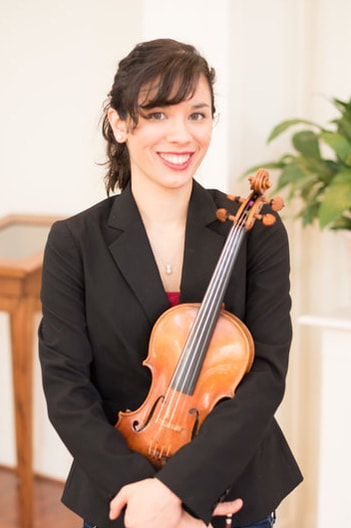1. Participate in recitals. Performing for your peers and being there to support them when they perform is a wonderful way to start building community. Make sure the recital is your priority that day so you can stay for the whole recital and also spend time socializing with your friends afterwards.
2. Take advantage of studio classes or group classes. Busy families sometimes choose to forego the group classes - a private lesson once a week is all they can manage schedule and budget-wise. These students sometimes suffer from isolation. They aren't around other people their own age who are playing the violin, and violin is just something they do by themselves. Consequently, they're less motivated practicers and less enthusiastic about violin in general. My students who participate in group and studio classes, however, ask me frequently about their friends in the studio, practice eagerly so they can play with their fellow students, and give more confident performances because of their comfort in front of an audience. These group experiences create positive peer pressure. It's also wonderful for parents, because they see that they are not alone in trying to convince their children to practice and they create their own community.
3. Invite your violin friends over for playdates - with their instruments. Let them play whatever they want together, with no parent direction. This helps reinforce the message that violin is fun, and interactive. It can be a great way to balance out more focused, parent-directed practice sessions.
4. Go to concerts. It's very cool for kids to go to a concert and be able to say, "I play violin too!" Or even, "Someday, that will be me up there!" This is also a great family activity or even a good play date activity. In the DC area, where I live and teach, there are countless concert opportunities every weekend - many of them free! This is a wonderful way to connect to the larger music community.
5. Play in an orchestra or a chamber group. Whether you're a 10 year old looking for more friends at school or an adult looking to connect with other musical amateurs, playing in an orchestra or a chamber group can greatly enhance your musical life. Learning to play with others as part of a team is an invaluable experience - and also great practice motivation. It's one thing to miss a day of practice and only have your own playing to worry about. It's another thing to not practice routinely and have that let your group down. And once again, it's fun. Connecting with like-minded peers is essential for musical growth and development, and playing in an ensemble gives you that experience.
Stay tuned for the last post in this series: Towards Complete Independence.

 RSS Feed
RSS Feed